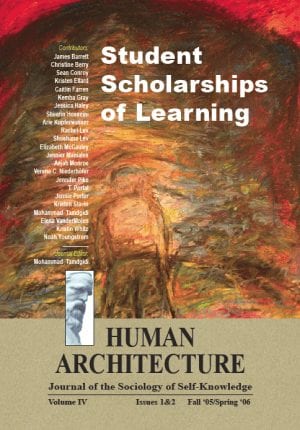Journal Article — The Present Father: Applying Sociological Theory from A Father’s Standpoint — by Edmund J. Melia
$15.00
The purpose of this sociological self-exploration, applying various sociological theories and concepts in a sociological imagination framework, is to understand why I get so offended by this treatment and why I take it so seriously. I want to learn why this issue has been so important to me ever since my wife and I went to our first doctor’s appointment to confirm that we were having a child.
Description
Abstract
My greatest joy in life and biggest source of pride is being a father. I take the responsibilities that come with being a parent very seriously and I am completely involved in all aspects of my daughter’s upbringing. However, there have been many instances where I have felt treated as less than an equal parent because I am not the mother. I have felt like I am on a second tier when it comes to receiving information and making decisions about my daughter’s livelihood. The purpose of this sociological self-exploration, applying various sociological theories and concepts in a sociological imagination framework, is to understand why I get so offended by this treatment and why I take it so seriously. I want to learn why this issue has been so important to me ever since my wife and I went to our first doctor’s appointment to confirm that we were having a child.
Recommended Citation
Melia, Edmund J. 2011. “The Present Father: Applying Sociological Theory from A Father’s Standpoint.” Pp. 69-80 in Graduate Theorizations: Imaginative Applied Sociologies—Manifest and Latent (Human Architecture: Journal of the Sociology of Self-Knowledge: Volume IX, Issue 1, 2011.) Belmont, MA: Okcir Press (an imprint of Ahead Publishing House).
The various editions of Graduate Theorizations: Imaginative Applied Sociologies—Manifest and Latent can be ordered from the Okcir Store and are also available for ordering from all major online bookstores worldwide (such as Amazon, Barnes&Noble, and others).
Read the Above Publication Online
To read the above publication online, you need to be logged in as an OKCIR Library member with a valid access. In that case just click on the large PDF icon below to access the publication. Make sure you refresh your browser page after logging in.








